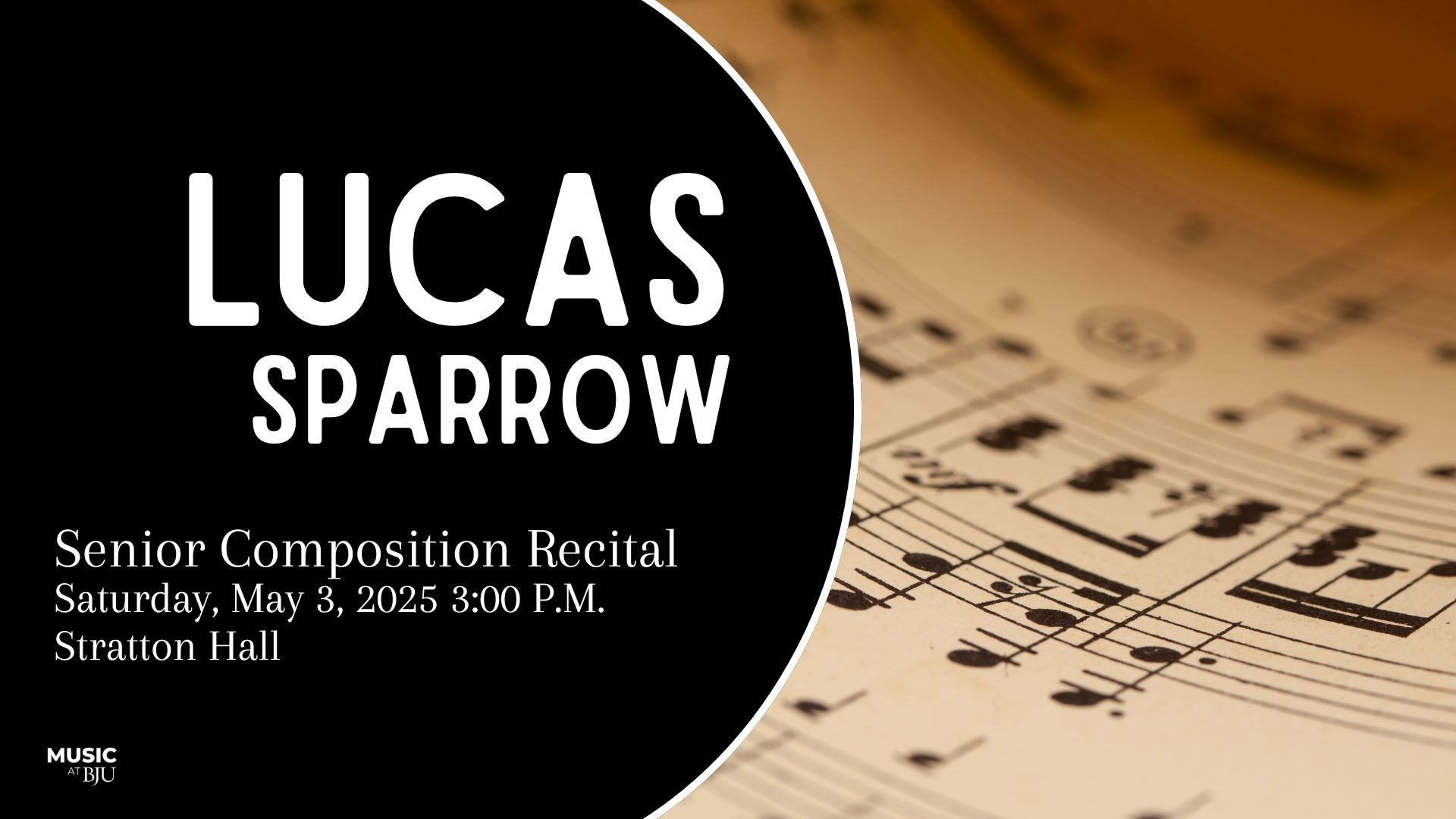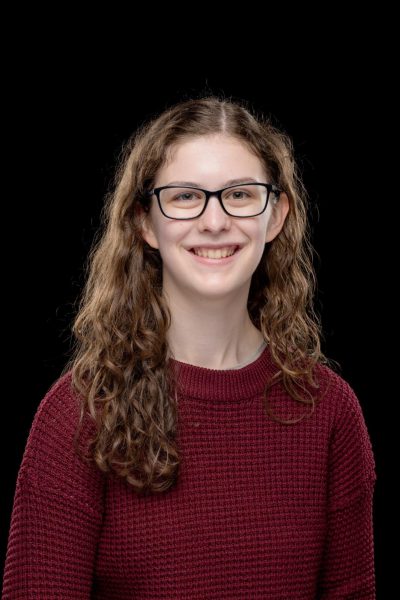Lucas Sparrow, a senior composition major, will bring his compositions to life at 3 p.m., May 3, in Stratton Hall when his works are performed as part of his senior recital.
The capstone project for a composition major is unique from other performances. Rather than practicing various pieces for a concert performance, Sparrow produced seven pieces for this concert, featuring a variety of instruments, including a 20-player wind ensemble and a piano quintet piece with a tenor solo.
The first piece Sparrow composed that appears in this concert was in the fall of 2022. Sparrow used this piece in his grad school auditions, and it allowed him to qualify for many programs. He gained inspiration for this piece while listening to a contemporary flute composer named Herman Beeftink.
Sparrow often is inspired by his experiences and faith in Christ. One example of this is “Prelude to a Woe,” named to remind the listener of impending biblical judgment. This piece is Sparrow’s first major composition for a larger ensemble and his most challenging composition so far. Sparrow gains the most pleasure not only from hearing and seeing his compositions performed but also from hearing them practiced. He knows that his performers are putting in time for his piece to be the best it can be.
According to Sparrow, the process of creating a composition requires creativity and ingenuity. First, a composer must create a concept for a piece, which involves numerous abstract ideas and vague sketches to create something more concrete. Next, the piece must be planned and put on paper, which Sparrow said is the hardest part of the process. Lastly, the piece must go through many revisions, a procedure that Sparrow accomplished with his composition professor of three years, Dr. Seth Custer. While some of these revisions are objective, such as the form of the piece and the quality of techniques, others can be more subjective. For example, Dr. Custer emphasizes the color and consistency of a piece, while Sparrow himself favors the natural unfolding of a piece.
While Sparrow does not have any specific ideas for new compositions, he plans to write music for an upcoming student film and complete hymn arrangements for a camp in Illinois this summer. Sparrow does not intend for these compositions to only be performed at this concert but hopes for them to be used by others in the future.
Sparrow learned a lot from writing these compositions. He discovered that music is a craft but in a different sense than a craftsman. While there is a distinction between a craftsman and an artist, Sparrow asserts that all artists are craftsmen. He also described how assumptions are made about composers creating pieces when struck with inspiration, but Sparrow discovered that a true composer must learn to create without inspiration striking at first.
Sparrow looks to several composers for inspiration, such as John Corigliano for his form and expression and Joseph Schwantner for his use of sound and harmonies to evoke emotion. His favorite composer is Gustav Mahler for his unique style in moving the soul and the monumental pieces he has written, such as his Symphony No. 2.
Sparrow believes that music is not communication, but rather an emotional expression. It should not be written just to exist but with a clear message or purpose. Music is meant to worship, glorify God and edify our fellow man. Music is pure enjoyment given by God as a form of common grace and should be used to give back to Him. As Bach penned at the end of each of his compositions, “Soli Deo Gloria,” or “Glory to God alone.”
Sparrow’s senior recital is free and open to the public.





















































